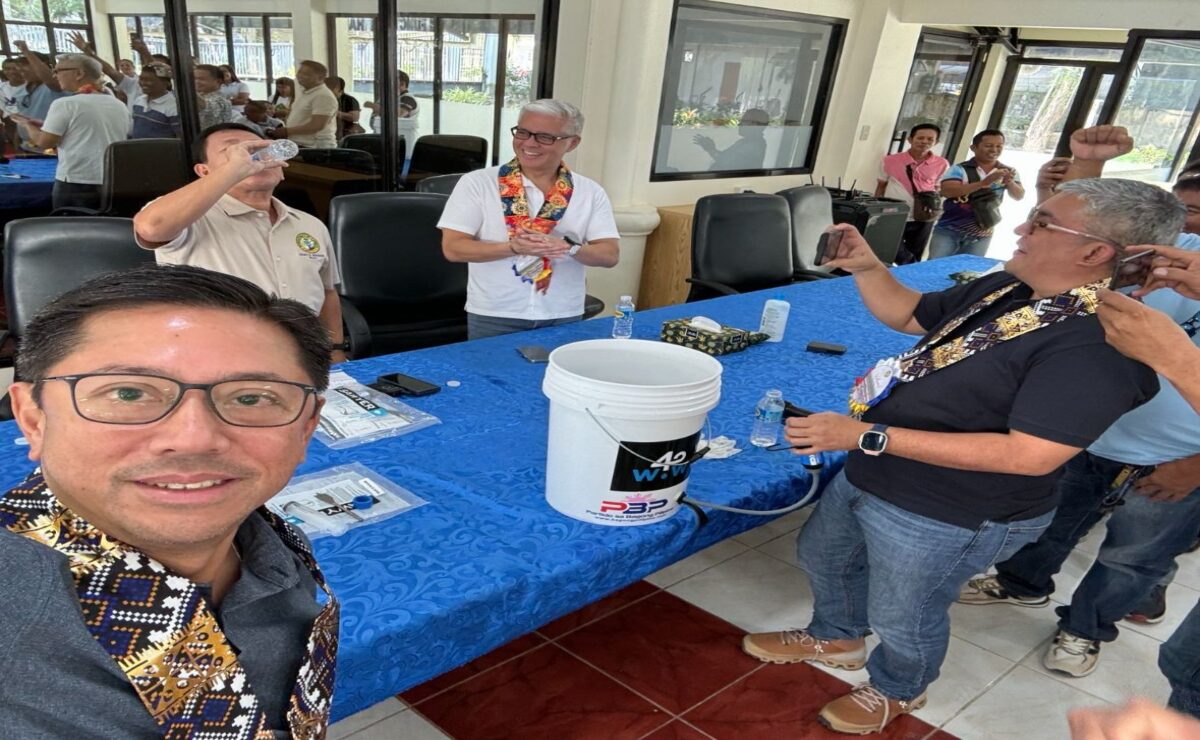PBP promotes barangay-led solutions to bridge water access gaps

Carmen Mayor Leony Bahague, together with Davao del Norte congressional candidate JM Lagdameo, PBP Partylist nominees Atty. Goyo Larrazabal and Beaver Lopez, drinking the water sourced from rain water mixed with dirt and filtered by Waves for Water filtration system, which provides safe and clean drinking water.
MANILA, Philippines — More than half of Filipino households lack access to safe drinking water, according to the United Nations, leaving millions to rely on unsafe sources for daily needs. The problem is most severe in remote communities, where water systems are outdated, unreliable, or entirely absent.
To address this gap, Partido sa Bagong Pilipino (PBP) is promoting barangay-led solutions, including practical water filtration technology that can provide clean drinking water in hard-to-reach areas. Former Comelec commissioner and PBP leader Atty. Goyo Larrazabal recently demonstrated how the system works, emphasizing its potential to improve health and quality of life at the community level.
“Clean water should never be a privilege,” Larrazabal said. “By equipping barangays with affordable solutions and the right support, we can tackle this problem where it matters most—on the ground.”
A 2023 report from the World Bank highlighted the urgency of the crisis, noting that the Philippines lags behind many of its neighbors in access to safe water and sanitation. Climate change is further straining already fragile systems, as rising temperatures increase water demand while reservoir levels drop.
The Philippine government has committed to achieving universal access to safe water by 2030 under the UN Sustainable Development Goals. However, progress has been slow, with local governments often lacking the funds and capacity to implement sustainable solutions.
PBP is advocating for barangay-centered policies that empower local governments to implement their own water security projects. The party’s proposed initiatives include creating a “Water Security Fund” to provide barangays with resources for sustainable water systems and capacity-building support.
“This isn’t just about infrastructure—it’s about giving communities the power to solve problems themselves,” Larrazabal said. “Barangays know their needs better than anyone else. They just need the right tools and support.”
PBP’s barangay-first approach appears to be gaining ground. The party recently climbed to the 19th spot in Tangere’s 2025 Pre-Election Party-List Survey, reflecting growing support for its grassroots-driven platform.
With 156 party-list groups competing for limited seats in the House of Representatives, PBP is banking on its barangay-centered platform to stand out in an increasingly crowded field. The party believes that by focusing on tangible solutions like water security, it can earn the trust of voters looking for leaders who will deliver results at the community level.


















